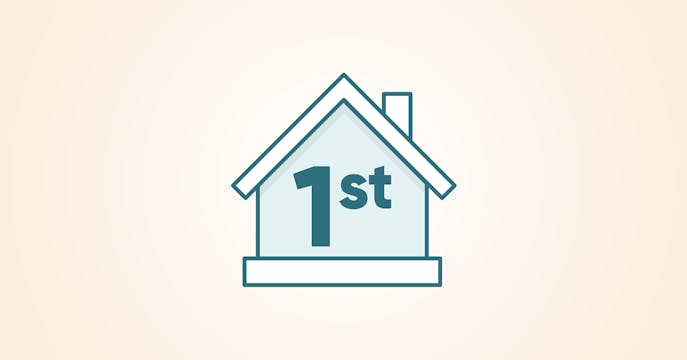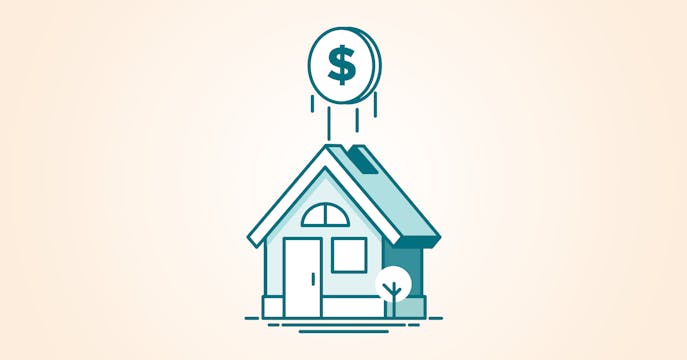Lowest Mortgage Rate in Canada. Starting from 2.49%
Should you skip a home inspection?
There's only one good, responsible answer. (No.)
But what if you feel you have to? Whether you're trying to save a few bucks, or want to get the jump in a bidding war, waiving a home inspection may lead to repair costs you didn't see coming.
'Lifting the roof' for a look inside — what are your options?
Ultimately, a full, professional home inspection (as part of your conditional offer) is the best way to protect your financial investment (aka your soon-to-be-home). But, in frenzied Canadian housing markets, some buyers (and sellers) are foregoing one to sweeten the offer or aid a faster turnaround in the deal.
Why is a home inspection so important?
It's a buyer-beware world. So, hiring an expert home inspector helps give you as much information as possible on the state of the house you want to buy.
Acting as your personal 'private investigator,' they usually have decades of experience, and have the tools and know-how to spot the things you didn't expect to see — complete with pictures and a very detailed report.
- Can you afford major repairs that you didn't plan on?
- Or a lot of smaller ones that can really add up?
If there are significant structural or system issues that will affect your ability to live comfortably or safely in your new home — not knowing makes it harder to plan for the extra costs and inconvenience.
You went through a pre-approval process to know how much home you can afford. So if you need to skip a full home inspection, there may still be options to help protect your home-expense budget.
Whatcha in for? Here's what a home inspection inspects.
According to Ryan Van Kessel, certified professional Home Inspector and owner of PROspections in Calgary, Alberta, a typical home takes 2-3 hours (or half that time if he brings a qualified assistant) as he evaluates about 140 points inside and outside the house, including the major stuff that can cost big-time if something's wrong:
- Electrical system
- Structural components
- Heating/Cooling system
- Plumbing system
- Insulation/Ventilation
Ryan strongly suggests that the potential homeowner be there during his inspection to learn first-hand about how to take care of specifics or systems, or lay eyes on the possible issues.
Afterwards, he provides a detailed, sectioned, written report on the state of the home — an essential and helpful homeowner reference tool, which includes maintenance to-dos and tips involved in your home's upkeep. This report also offers a good idea of what can come up in tasks and expenses for your future budgeting purposes.
A home inspection is not an absolute guarantee of what may go wrong (a home inspector can't cut into walls or floors), but "it's the closest you can get to 'knowing all' about your new home, and what fixes may be needed now and down the road," states Ryan.
Waiving a home inspection can be scary. Here are some 'protective' steps you can still take.
At the absolute very least, bring a flashlight.
On the first showing or open house, take a flashlight with you and ask questions. If you see something suspicious, it may be time to bring in a professional for a closer look.
- Look in corners, in closets, around toilets and sinks, and along ceilings, floors and baseboards.
- Look around the basement for signs of leaks or water damage.
- Are there fresh signs that something has been recently repaired or installed?
- Outside, look at the foundation and up at the roof for signs of cracks or leaks.
Want to know more? There are some questions only an experienced home inspector can help you answer.
Buying a home is a big financial commitment, and you'll want to ensure your future budget can stay on track. Does the home need a new roof or a sewer redo? Ryan explains that many new homeowners aren't prepared for those higher-cost repairs right off the start. See foundation cracks or evidence of water leaks? He warns that there "may be hidden mould or future flooding waiting down the road that'll cost you thousands more, along with the disruption of major home repairs."
Next best option to a full home inspection? A 'high-level' walk-through.
"The older the home, the more important it is to have that closer look. Unless you have decades of experience, you may not notice something yourself until it's too late."
– Ryan Van Kessel, certified Home Inspector and owner of PROspections, Calgary, AB
If time is tight, bring along a home inspector for the next showing or walk-through. It's like having a trained eagle-eye at your side to spot things you can't. There won't be much time (compared to a full inspection), but it may just end up saving you money and strife later, or at least give you a better idea of what you're in for.
(Already sure you want to make an offer? Consider hiring an inspector to help for the first walk through!)
For these quicker, mostly hands-off inspections, Ryan will bring along a thermal camera to check for hidden leaks and cracks, in addition to his decades-long expertise to spot house-system trouble. With this verbal-advice-only service (no written report to follow), it absolutely does not replace the value to you that a full inspection provides, but, as Ryan puts it, "it's better than nothing."
What if the walk-through home inspection reveals something you didn't expect?
You'll still have time to decide if you want to schedule a full inspection as part of your offer conditions, or even make the call to keep looking for a home that fits the bill.
When markets heat up, home inspectors get more requests for a fast turn-around.
In Calgary, Mr. Van Kessel is fielding a 30% increase in requests for fast-turn-around inspections this year, partly due to an influx of out-of-town buyers. That includes a significant increase in walk-through inspections (2-3 times a week versus a year) — an indication that clients are thinking of waiving the full inspection to snag the deal in high-pressure housing buys.
In other major, highly-competitive Canadian markets, such as Vancouver or Toronto, the 'skipping a home inspection' approach has already become a troubling trend, as home buyers deal with low-inventory, high-sales pressure to win a bidding war and secure a home.
Is the seller asking you not to get a home inspection?
Beware — they may be hiding something significant. In most provinces, the seller is usually required to provide full disclosure on any major home issues, or past flooding or structural repairs — but that doesn't mean you're fully protected, or that it can be proved that they knew about problems before you purchased the house.
- Ask for past home inspection reports.
- Look for signs of recently-completed repairs, such as newer paint in one area or a sump pump installed after the home was built, to ask further questions.
- Keep in mind that any past issues may not be initially visible, or be hidden behind walls, ceilings or floors.
After the ink dries, it's not too late to schedule a full inspection.
Even if your mortgage deal has closed, the sooner you know about your new home and its potential maintenance scope, the sooner you can plan for a repair budget, or look into other options to minimize any financial impact. A HELOC can offer a lower-interest way to complete needed repairs, or maybe you'll need a future refinance for extra upgrade-funds.
Finally, is a home inspection really worth it?
The money you spend on a quality home inspection can save you a lot of money AND stress, both upfront and later on. Or, shelling out that bit of extra cash on a walk-through inspection may provide the confidence boost you need to seal the deal when you find the house you really want.
Plus, having a better idea of what you're in for — in maintenance and repair costs — can be half the battle for timely budgeting and to keep up your home's resale value.
Instead of skipping the inspection, save with your better rate and mortgage fit.
We have your best rate, along with flexible mortgage options, to save you thousands, including on fees or pre-payment penalties. Your expert True North Mortgage broker is here to help for free, and can answer questions about how your home inspection fits into your mortgage process.
A few minutes with us could save you thousands.
Get great mortgage advice, here's more

First-Time Home Buyers
Get the best start and save a pile of cash with our mortgage experts.

Home Equity Line of Credit (HELOC)
Need extra funds? A secured Line of Credit may save your day, without breaking the bank.

Know the Risks of a No-Conditions Offer
Be prepared! In a stormy seller's market, your clean offer can leave you unprotected.

